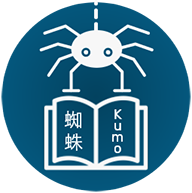10. Operation 011006 Defense Battle (part2)
“Squad 1111. No casualties.”
There was no response from Squad 1112. Only sounds of battle and curses came through the radio.
“Squad 1113. One KIA, two lightly wounded. Still able to fight.”
Platoon 1114 was also unresponsive, and I could hear shouts and screams.
“Captain’s Squad. Two seriously wounded, one lightly wounded. Unable to continue fighting. Squads 1111 and 1113, hold your positions at the front of the cloud of dust. Rescue the vanguard.”
Following orders, I held my assault rifle at the ready as the cloud of dust still hung in the air. I waited on standby, ready to shoot as soon as I could see through the cloud.
I raised the sensitivity of my thermosensor and peered into the dust cloud, but there was no reaction. No matter what was in there—friend or foe—if it was giving off heat, the sensor should have picked it up, but there was nothing.
Even a fresh corpse should have shown up as hotter than the surroundings, but there was nothing at all.
However, I could hear the sounds of battle from within the cloud. There was no doubt that some of my comrades were still alive.
I could still hear screaming and cursing over the radio.
Was the thermosensor malfunctioning? I quickly dismissed that idea. It was hard to believe that all our sensors were malfunctioning at the same time. And the fact that no one was giving a report, hinted at the fact that everyone was experiencing the same thing.
First, let's consider what could cause the sensors to not detect anything.
Explosives could raise the temperature to the same level as a human body, but the thermometer was showing eighteen degrees Celsius. No, that wasn’t it.
What if the dust was chaff, a special material used to counter and interf with the sensors? The Lunarians had never used chaff before. It was possible that this was the first time, but the loud explosion and the voices I’d heard over the radio made me think this was some kind of physical attack. Chaff didn’t require a powerful explosion, and it didn’t seem likely that it could inflict lethal damage. In other words, it wasn’t chaff.
In that case, I should be thinking of a more primitive method. We were in a cave. What kinds of accidents could happen in a cave?
Cave-ins, collapses, flooding, and dust explosions. Cave-ins and collapses wouldn’t make that kind of noise. If it was flooding, we should have been able to feel the moisture on this side, too, but there was no sign of that.
The most likely candidate was a dust explosion, but the conditions for that didn’t seem to be right.
People think that if dust is floating in the air, it’s easy to set off an explosion, but that’s not true. The dust has to be combustible and micron-sized. If the concentration is too thick or too thin, it won’t explode. And if the oxygen concentration in the dust cloud is too high or too low, it won’t explode, either.
This dust was made of dirt and sand, and it didn’t contain any coal or metal. In other words, it wasn’t combustible. No matter how you looked at it, a dust explosion wasn’t going to happen.
Was there a mistake in one of my assumptions? Suddenly, that doubt crossed my mind.
If my new hunch was correct, I would have to change the way I thought about the Lunarians. The threat they posed would increase, and I would have to rethink my basic strategy.
Slowly, I lowered my gaze from eye level to below the ground. A vertical depth graph on my monitor showed “−1 m,” “−2 m,” “−3 m,”. Then I got a reading from the thermosensor. There were several dozen heat sources down there batteling each other.
My bad premonition turned out to be correct. The why, what and how where now clear. We had to rescue our comrades as soon as possible. There was an idiot down there who seemed to hate me for some reason, but the basic strategy of the Japanese Army was to eradicate the Lunarians and rescue our allies, and we had to follow it. This had been drilled into every soldier to the point that it was a reflexive response.
“Vanguard squad confirmed. Engaged in combat at a depth of three meters. Confirmed by thermosensor. Unable to identify friend or foe.”
When I reported this, there was a momentary stir on the squad radio.
Just a few minutes ago, this had been a flat corridor. If there had been any depressions or fissures, we would have noticed. A hole three meters deep had suddenly opened up and swallowed the two vanguard squads. There were twenty of us in this company. We should have noticed a hole this deep.
But reality was different. There was a hole, and a battle was happening inside it. However, our vision was blocked by the dust. While we could barely make out the shapes of people via the thermosensor, we couldn’t tell friend from foe.
“In these conditions, we can’t provide support fire. Does anyone have any ideas?”
The squad leader asked for suggestions, but no one responded. The radio stayed silent.
Even if we jumped into the hole, with the poor visibility, we wouldn't be able to fight properly. Shooting down from above to suppress the enemy was also out of the question. The risk of friendly fire was extremely high.
Want faster chapter releases or help me make this site more awesome?
Every little bit helps!
If we had any poison gas on hand, it would have been an effective method, as our allies would be wearing helmets with air purification functions. But that was a useless idea without any gas on our hand.
The squad radio rang out.
“Captain, what if we switch our helmet visors to light-blocking mode, fire flashbang grenades from our rifles, and identify those standing as allies and those struggling as enemies? Could we suppress the enemy that way?”
The suggestion came from Kikyou. I immediately ran a simulation in my head.
We could give clear instructions to our allies via radio. Fire the flashbang grenades, have our forces stay still, blind the enemy with the flash, and then aim and shoot.
It was simple and easy to understand, but was there anything I’d overlooked?
“What if the enemy is so surprised they don’t move at all?”
Saika’s offhand comment gave shape to the thing that had been bothering me.
“You’re right. I didn’t think of that. I’m sorry.”
Kikyou apologized, but it wasn’t a bad strategy. Now that we atleast had some kind of solution, I felt confident that I could propose it to the squad leader.
“I think it’s a good strategy, all things considered. We won’t be able to completely wipe out the enemy, but we should be able to reduce their numbers significantly. I’ll suggest it to the company leader.”
When I proposed Kikyou’s idea to the company leader, the other squad leaders agreed, and we immediately put it into effect. Meanwhile, the fighting in the hole continued. In a situation like this, friendly fire was unavoidable, and we were all in agreement that we had to do whatever we could to save as many lives as possible.
“Three, two, one, go.”
At the company leader’s signal, three of us fired flashbang grenades into the hole. A powerful light source erupted inside. Even with our anti-glare visors on, the light was blinding.
Our external mics picked up the sound of the Lunarians’ shrieks. The sudden burst of light in the darkness must have really hurt their retinas.
As soon as the light faded, we removed our anti-glare visors and took aim with our assault rifles. Our thermal sensors picked up two types of shadows: those that didn’t move an inch, and those that writhed on the ground. Without hesitation, we shot down the staggering shadows, even if they might be allies.
If they didn’t want to die, they had to believe in their comrades, even if the Lunarians were trying to beat them to death. The only hope for survival was to endure that fear and not move.
We targeted the enemies that posed the greatest danger to our allies. In two minutes, the number of motionless shadows had decreased to twelve.
We had gunned down several dozen Lunarians at the bottom of the hole, but most likely also hit some of our own people, too.
“Report status, Squads 1112 and 1114.”
“Squad 1112 has one KIA and three lightly wounded.”
“Squad 1114 has two KIAs and one seriously wounded.”
Jabami answered for Squad 1112, but for Squad 1114 it was the vice captain. Imori must have died or been seriously injured.
“Understood. I apologize, but our visibility is still poor, so we can’t provide any further support. Good luck.”
It sounded as if the company leader was abandoning the vanguard squads, but there was nothing we could do about it. We couldn’t jump into a zero-visibility space. I would have made the same decision.
Out of eight squad members, three were dead. If the five survivors were all we had left, that meant there were seven Lunarians remaining. With five against seven, they would still have the advantage. All we could do now was hope for a break in the dust cloud and provide cover fire.
“Squad 1111, stay alert. Be on the lookout for more Lunarians. Squad 1113, get ready to provide cover fire. Shoot as soon as you get a clear line of sight. I will contact headquarters and request rescue. Acknowledge.”
“Squad 1111, roger.”
“Squad 1113, roger.”
I could hear labored breathing over the platoon radio. I couldn't tell if it sounded like pained moans or strained sighs due to the battle. For a moment, I felt a pang of regret over my own inability to do anything, but then I focused on my lookout job.
Want faster chapter releases or help me make this site more awesome?
Every little bit helps!


